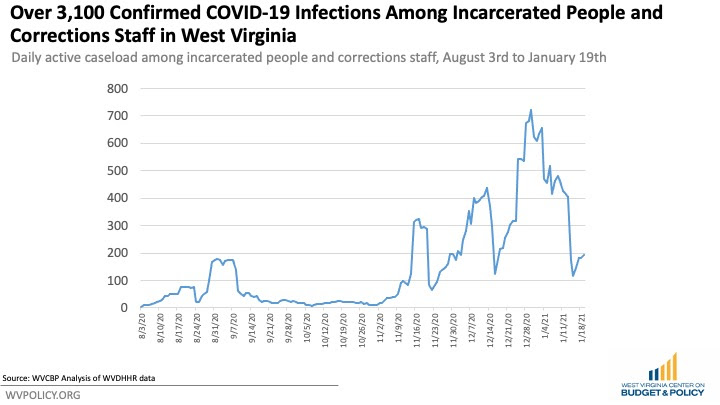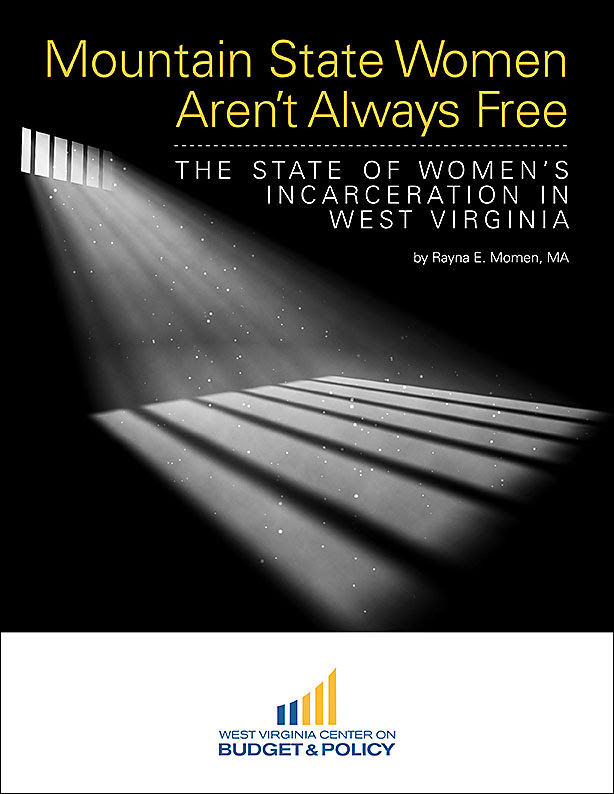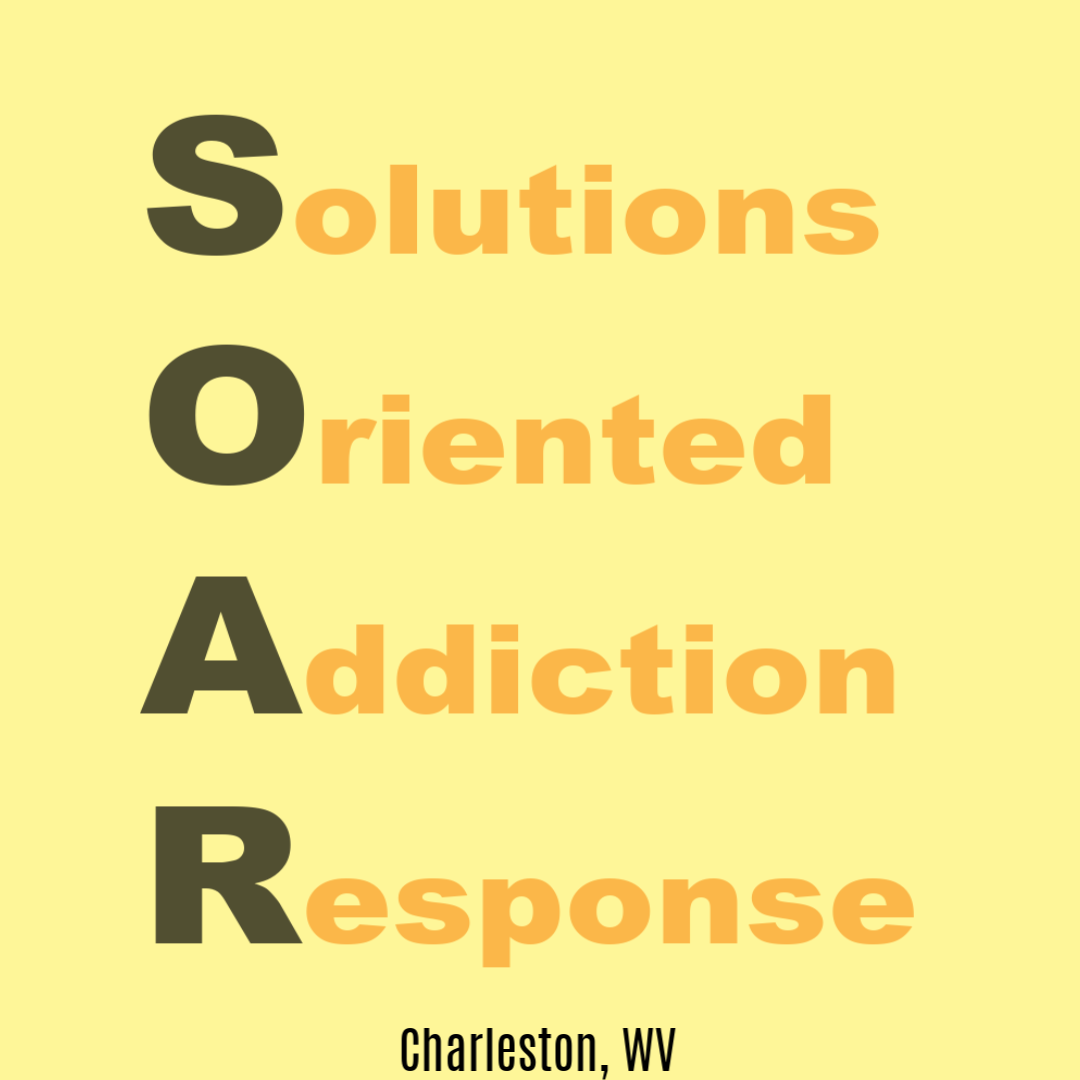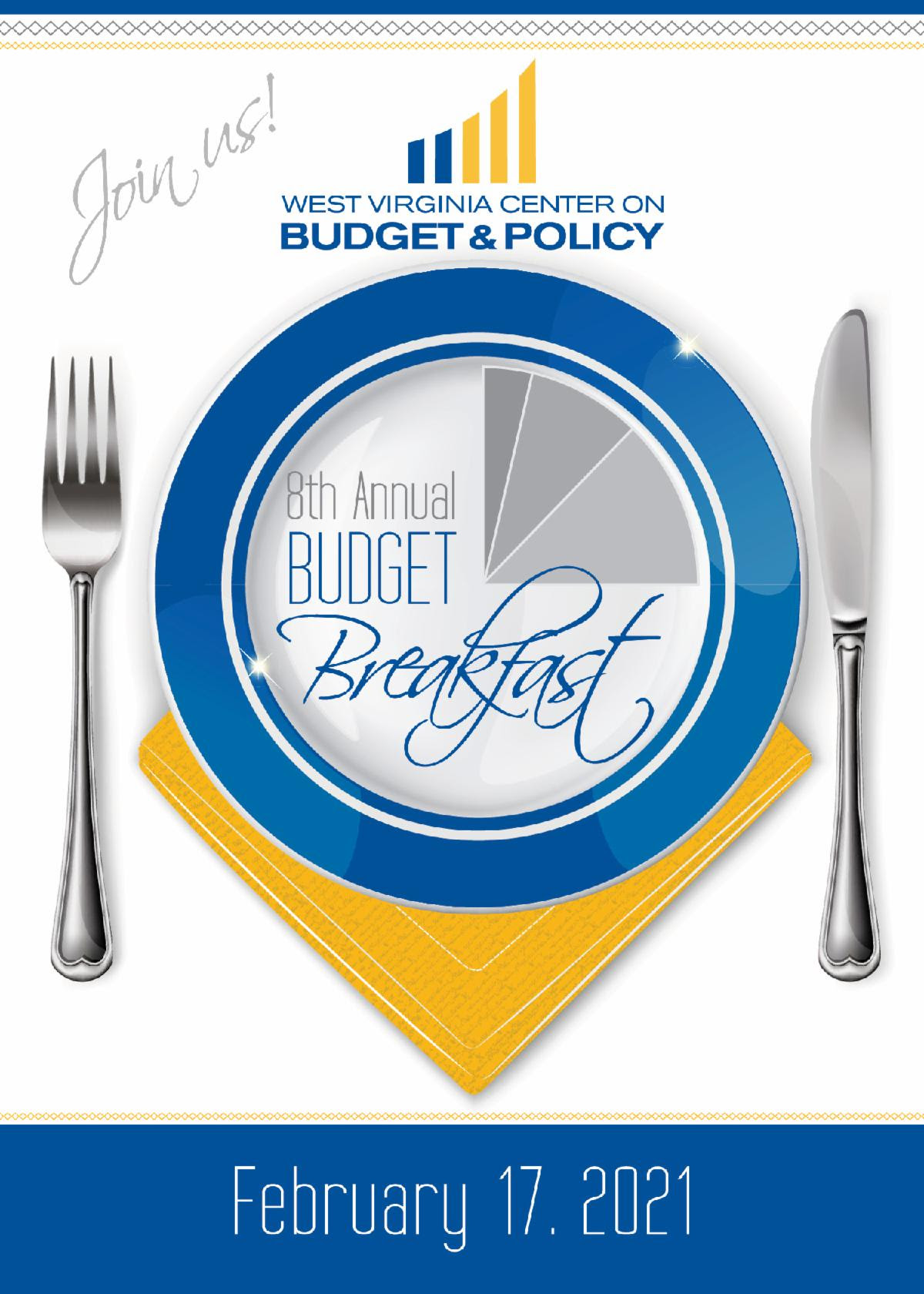The Governor’s annual State of the State address took place this Wednesday evening. During the address, Governor Justice previewed a troubling plan to eliminate the income tax by increasing the sales tax, cutting services, and using one-time federal stimulus money to close the gap.
Here’s WVCBP executive director Kelly Allen’s statement on the address:
“Every good thing Governor Justice touted about West Virginia tonight — our COVID response, park improvements, the tourism department, and investments in our children — is funded through public tax revenues like the personal income tax. To hear him follow those successes with plans to eliminate our state’s fairest tax during a pandemic is inexplicable. Worse, he previewed that he plans to pay for the tax cuts with one-time federal stimulus dollars meant to go to families and communities who are suffering due to the pandemic.
“The way we improve opportunity for all West Virginians is by investing in families and communities — not slashing the public programs that benefit us all.”
For more details on Gov. Justice’s plan outlined in the State of the State address, check out this article.
WVCBP’s senior policy analyst Sean O’Leary had spent the weeks leading up to the legislative session outlining why eliminating the state personal income tax is misguided and truly harmful policy. You can find links to his numerous blog posts on this subject below:
A broad coalition of 30+ community organizations recently called on West Virginia political leaders to protect our state’s revenues and public services during this year’s legislative session. You can read the full letter here.
Finally, we welcome you to join us and send a letter of your own urging legislators to prioritize investing in West Virginia’s families and communities over providing a tax cut to the state’s wealthiest here.

State-funded vouchers use existing state funds intended for public schools and instead redirect them for use in non-public, private education programs. Education Savings Accounts (ESAs) are a form of these state-funded vouchers. The primary difference between ESAs and traditional vouchers is that with ESAs, the public funds go directly to the family of the student – rather than the private school – and can be used for almost any educational services and supplies, involving less oversight than with traditional vouchers.
Our school districts are struggling to keep up with increased costs as funding levels remain flat. During the legislative session, lawmakers are considering approving ESAs, which could divert significant amounts of money away from the public education system in the wake of a pandemic when children are returning to in-person public schooling and resources are needed more than ever.
To learn more about why most West Virginia families do not benefit from ESAs, read our ESA Fast Facts sheet or watch our explainer video.

With the US Senate now evenly divided, Senator Joe Manchin has found himself in a position of great political influence. A recent piece from the New York Times features insight from WVCBP’s very own executive director, Kelly Allen, and senior policy analyst, Sean O’Leary, about the opportunities for renewal in West Virginia now that the state is receiving unique federal attention.
“The honest answer of it, from our perspective, is that West Virginia & Appalachia deserve an outsized piece of any federal recovery policy.” – Kelly Allen
And a critical point from the piece not to be overlooked:
“Until now, many organizations in West Virginia lament that the state has focused too heavily on luring outside employers, rather than building up the state’s own assets.”
We urge West Virginia policymakers to keep this in mind as the 2021 legislative session gets underway. In the coming years as we work to build back better in the wake of the pandemic, we should be resisting harmful tax cuts and looking for creative and equitable ways to generate revenue so that we can invest in our state in the way it deserves.
Read the full article here.

During this year’s legislative session, criminal justice reform advocates are looking to both advance reform laws that have been passed in recent years, as well as push for new bills that keep the severe impact of COVID-19 on incarcerated people in mind.
WVCBP’s criminal justice policy analyst Quenton King was interviewed this week for a piece on this topic from West Virginia Public Broadcasting.
He also recently outlined the Center’s criminal justice priorities for the 2021 legislative session. You can find the details here.
Finally, don’t miss out on a critical report recently released from our colleagues at the ACLU of WV. In their new piece, they detail how West Virginia’s jails are some of the deadliest in the nation, as well as how the state should responsibly respond to this crisis.

At the end of 2020, WVCBP published a report by Rayna Momen that outlined the alarming growth of women’s incarceration in West Virginia, as well as the unique hardships women experience while incarcerated.
Last week, Rayna and WVCBP executive director Kelly Allen co-authored an op-ed on this carceral growth that ran in the Martinsburg Journal. Excerpt below:
Over the last 40 years female incarceration in West Virginia has exploded, growing by a staggering 2,731 percent from 1978 to 2019. Over the same period, the state’s population has declined by nearly seven percent. What could explain such exponential growth in female incarceration as our overall population has declined?
We found that it wasn’t an issue of rising crime. Instead, the increase in incarceration is due to social drivers, like poverty and substance use, and policy drivers, like sentencing decisions. These drivers seem to be impacting women more than men, with female incarceration growing three times more than male incarceration over the last 20 years. West Virginia ranks in the top 10 of all states for its rate of female incarceration and in the top five for its rate of female juvenile confinement.
Read the full op-ed here.

As Solutions Oriented Addiction Response’s (SOAR) harm reduction efforts come under threat, WVCBP reaffirms our full support of the organization’s life-saving work.
At the end of 2020, we published a blog exploring the surge in HIV and Hepatitis C cases in Kanawha County largely due to the sharing of needles to inject drugs, and how syringe services programs (SSPs) like those operated by SOAR play a critical role in reducing the spread of these diseases. SSPs are effective, cost-saving, and treat those in our community who inject drugs with the dignity that all folks deserve.
Currently, SOAR’s work is deemed 100% legal in Charleston. Over the next couple weeks, Charleston City Council will likely vote on a new ordinance that would make SOAR’s current harm reduction program a misdemeanor with hefty fines. If this ordinance were to pass, it would also make Charleston the first West Virginia city to outlaw an active harm reduction program.
If you are a Charleston resident, we invite you to join us in contacting your City Council Member and voicing your support for the full authorization of SOAR’s work.
Not sure who your Council Member is? There’s a handy map here and a list of contact information here.
Again, we at WVCBP wholeheartedly believe that SOAR’s work makes the Charleston community both kinder and safer. We would sincerely appreciate if you contacted your Council Member and expressed support for SOAR’s work.

Join us for our 8th annual Budget Breakfast!
Due to COVID-19 considerations, this year’s event will be held virtually via Zoom.
WVCBP’s analysis of the Governor’s 2022 proposed budget will start at 8:00am, followed by keynote panel presentation and time for Q&A.
Our keynote panelists, Rep. Don Hineman and Duane Goossen, will highlight the failed Brownback tax experiment in Kansas and why West Virginia lawmakers should avoid going down the same path. Don Hineman is a Republican member of the Kansas House of Representatives, representing the 118th District. He has served since 2009. He was the Majority leader from 2017 to 2019. Duane Goossen is the former Kansas Secretary of Administration and the Director of the Kansas Division of the Budget. Goossen has served as the Secretary of the Kansas Department of Administration since 2004 and Director of the Kansas Division of the Budget since 1998. Goossen also served in the Kansas House of Representatives 1983 to 1997.
While attendees are welcome to join the webinar at no cost, we hope you will consider supporting the WVCBP’s work and contributing to our annual fundraiser by donating the usual cost of an in-person ticket ($50).
You can find registration here.
We hope to see you there!

| We are now accepting applications for the summer of 2021! Priority will be given to applications received by February 26, 2021. WVCBP seeks a summer policy associate for an internship to work on issues associated with our research and advocacy priorities. Our summer policy associates work closely with WVCBP staff, coalition partners, and stakeholders in an immersive experience in research and advocacy for evidence-based solutions, policies, and practices surrounding issues that impact low- and moderate-income West Virginians. The WVCBP internship program’s mission is to partner our organization with highly motivated undergraduate and graduate students committed to building shared prosperity through policy change. Our internship program prepares students for potential employment in the non-profit policy world by training them to conduct rigorous data and policy analysis or outreach and advocacy while developing effective communications strategies. Find the full job posting and instructions to apply here. |
